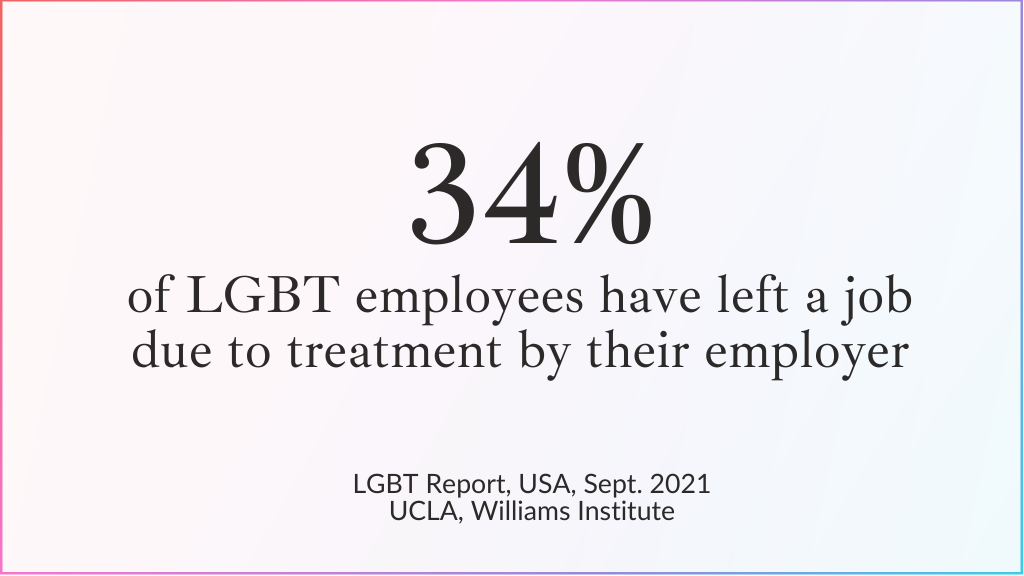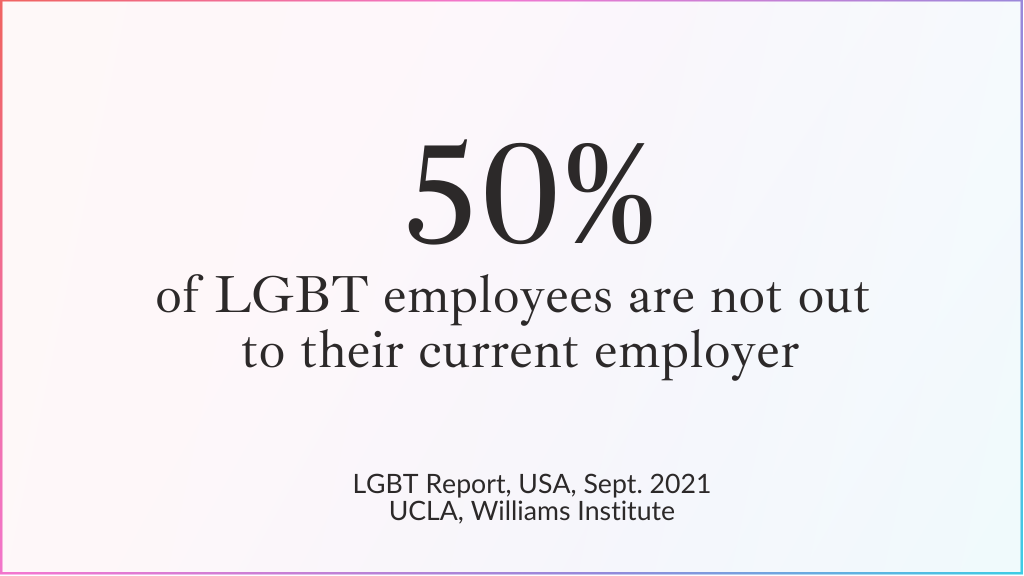 LGBTQIA+ hate
LGBTQIA+ hate
Slurs and hate speech targeting the LGBTQIA+ community can be subject to legal – and disciplinary – action.
%20(1).png)
Using slurs and hate speech targeting the LGBTQIA+ community, even in jest or horsing around, shapes how others see you: as a professional, a colleague, a business partner, and as a human being. Moreover, it can have serious repercussions for everyone around you. LGBTQIA+ abuse threatens the mental and physical health of those victimized and poses severe safety risks for the environment in which it occurs.
Doesn't resonate with
- The generation born between the mid-to-late 1990s and early 2010s
- People in the LGBTQIA+ community
- People with an ancestal or cultural background that is not white
Shout-outs
- Language influences mass opinion toward gender and LGBT equality (Margit Tavits and Efrén O. Pérez)
- LGBT People’s Experiences of Workplace Discrimination and Harassment (Brad Sears, Christy Mallory, Andrew R. Flores, Kerith J. Conron)


